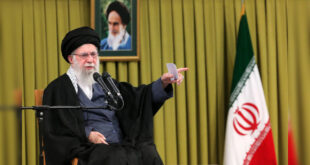WASHINGTON (Reuters) – The Bush administration still hopes to send an official to Moscow this year to discuss missile defense despite reports that the Kremlin has rejected the latest U.S. plan, the State Department said on Thursday.
A Kremlin source was quoted by Russia’s three main news agencies on Wednesday as saying that the Kremlin rejected recent U.S. suggestions aimed at easing Moscow’s concerns about a missile defense system in Europe.
But State Department spokesman Robert Wood said there had been no official reply from Moscow.
“We have yet to get a formal response. We’ve seen comments in the press,” he told a news briefing. “We’re still trying to work out, you know, a date for John Rood to go to Moscow to discuss his proposals.”
Rood is the acting undersecretary of state for arms control. He could still go to Moscow for talks this year, a State Department official said, but added that the dates now under discussion were at the end of December — about a month before President Bush steps down from office on January 20.
A Russian proposal for missile defense talks on November 27, the U.S. Thanksgiving holiday, was rejected by the American side, the State official said on condition of anonymity.
The Bush administration wants to install a missile defense shield consisting of 10 interceptor missiles in Poland and a radar station in the Czech Republic, a plan that Moscow sees as an act of aggression against Russia.
Washington says the system is needed to protect against possible missile launches from “rogue” states such as Iran.
Russian President Dmitry Medvedev has threatened to station new missiles near Poland’s border in response — remarks Defense Secretary Robert Gates called provocative on Wednesday.
A French newspaper on Thursday quoted Medvedev as saying Russia could cancel that idea if U.S. President-elect Barack Obama were to scrap the missile defense project.
Obama has supported work on a system to protect the United States and its allies from missile attacks, but says it must be “pragmatic and cost-effective” and cannot divert resources from other priorities until its technologies are proven.
 Eurasia Press & News
Eurasia Press & News



